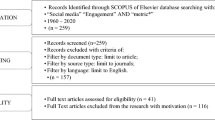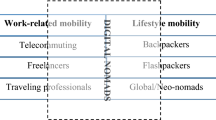Abstract
The mobile internet provides new and easier ways for people to organise themselves, raise issues, take action, and interact with their city. However, lack of information or motivation often prevents citizens from regularly contributing to the common good. In this paper, we present DoGood, a mobile app that aims at motivating citizens to join civic activities in their local community. Our study asks to what extent gamification can motivate users to participate in civic activities. The term civic activity is not yet well defined, so we collect activities citizens consider to be civic to work towards a broadly accepted definition of the term. The DoGood app uses gamified elements that we studied to gauge their role in encouraging citizens to submit and promote their civic activities as well as to join the activities of others. DoGood was implemented and deployed to citizens in a five-week-long user study. The app succeeded in motivating most of its users to do more civic activities, and its gamified elements were well received.





Similar content being viewed by others
References
Adler RP (2005) What do we mean by “civic engagement”? J Transform Educ 3:236–253
Bogost I (2011) Gamification is bullshit. http://bogost.com/writing/blog/gamification_is_bullshit
Bunchball (2010) Gamification 101: An Introduction to the Use of Game Dynamics to Influence Behavior. http://www.bunchball.com/gamification101
Currier J (2008) Gamification: game mechanics is the new marketing. http://blog.oogalabs.com/2008/11/05/gamification-game-mechanics-is-the-new-marketing/
Deci E, Koestner R, Ryan RM (1999) A meta-analytic review of experiments examining the effects of extrinsic rewards on intrinsic motivation. Psychol Bull 125(6):627–668
Deterding S (2011) Situated motivational affordances of game elements: a conceptual model. In Gamification: Using Game Design Elements in Non-Gaming Contexts, a workshop at CHI
Deterding S, Dixon D, Khaled R, Nacke L. From game design elements to gamefulness: defining “gamification.” In Proceedings of the 15th International Academic MindTrek Conference: Envisioning Future Media Environments (MindTrek ‘11). ACM, New York, pp 9–15. doi:10.1145/2181037.2181040
Deterding S (2013) Skill atoms as design lenses for user-centered gameful design. In Workshop Papers CHI
Deterding S (2015) The lens of intrinsic skill atoms: a method for gameful design. Hum Comput Interact 30(3–4):294–335. doi:10.1080/07370024.2014.993471
Dourish P. HCI and environmental sustainability: the politics of design and the design of politics. In Proceedings of the 8th ACM Conference on Designing Interactive Systems (DIS ‘10). ACM, New York, pp 1–10. doi:10.1145/1858171.1858173
Erickson T (2009) ‘Social’ systems: designing digital systems that support social intelligence. AI Soc 23(2):147–166
Fitz-Walter Z, Wyeth P, Tjondronegoro D, Johnson D. Exploring the effect of achievements on students attending university orientation. In Proceedings of the first ACM SIGCHI annual symposium on Computer-human interaction in play (CHI PLAY ‘14). ACM, New York, pp 87–96. doi:10.1145/2658537.2658700
Fitz-Walter Z, Wyeth P, Tjondronegoro D, Scott-Parker B. Driven to drive: designing gamification for a learner logbook smartphone application. In Proceedings of the First International Conference on Gameful Design, Research, and Applications (Gamification ‘13). ACM, New York, pp 42–49. doi:10.1145/2583008.2583014
Flanagan M (2006) Making games for social change. AI Soc 20(4):493–505
Foth M, Brynskov M, Ojala T (2015) Citizen’s right to the digital city: urban interfaces, activism, and placemaking. Singapore: Springer. 2015. ISBN 978-981-287-917-2. doi:10.1007/978-981-287-919-6
Foth M, Forlano L, Satchell C, Gibbs M (2011) From Social Butterfly to Engaged Citizen: Urban Informatics, Social Media, Ubiquitous Computing, and Mobile Technology to Support Citizen Engagement. MIT Press, Cambridge. ISBN 978-0-262-01651-3
Hamari J, Koivisto J, Sarsa H. Does gamification work?—A literature review of empirical studies on gamification. In Proceedings of the 2014 47th Hawaii International Conference on System Sciences (HICSS ‘14). IEEE Computer Society, Washington, DC, pp 3025–3034. doi:10.1109/HICSS.2014.377
Hansen DL, Koepfler JA, Jaeger PT, Bertot JC, Viselli T. Civic action brokering platforms: facilitating local engagement with ACTion Alexandria. In Proceedings of the 17th ACM conference on Computer supported cooperative work & social computing (CSCW ‘14). ACM, New York, pp 1308–1322. doi:10.1145/2531602.2531714
Haste H, Hogan A (2006) Beyond conventional civic participation, beyond the moral-political divide: young people and contemporary debates about citizenship. J Moral Educ 35(4):473–493
Kahne J, Middaugh E, Evans C (2008) The civic potential of video games. MacArthur Foundation
Lehner U, Baldauf M, Eranti V, Reitberger W, Fröhlich P (2014) Civic engagement meets pervasive gaming: towards long-term mobile participation. In CHI ‘14 Extended Abstracts on Human Factors in Computing Systems (CHI EA ‘14). ACM, New York, pp 1483–1488. doi:10.1145/2559206.2581270
Levine P (2007) The future of democracy: developing the next generation of American citizens. UPNE
McGonigal J (2011) Reality Is Broken: Why Games Make Us Better and How They Can Change the World. Penguin Group US
Nicholson S (2012) A user-centered theoretical framework for meaningful gamification. Games + Learn + Soc 8:223–230
Preist C, Massung E, Coyle D. Competing or aiming to be average?: normification as a means of engaging digital volunteers. In Proceedings of the 17th ACM conference on Computer supported cooperative work & social computing (CSCW ‘14). ACM, New York, 1222–1233. doi:10.1145/2531602.2531615
Ranghelli L (2008) Recent literature on measuring impact: advocacy, community organizing, and civic engagement. National Committee for Responsive Philantrophy
Ryan RM, Rigby CS, Przybylski A (2006) The motivational pull of video games: a self-determination theory approach. Motivation Emotion 30(4):344–360
Schell J. The art of game design: a book of lenses. CRC Press. 2008
Schroeter R, Foth M, Satchell C (2012) People, content, location: sweet spotting urban screens for situated engagement. In: Proceedings of Designing Interactive Systems 2012 (pp. 146-155), Newcastle, UK. New York, NY: ACM. 2012. doi:10.1145/2317956.2317980
Schuler D. Communities, technology, and civic intelligence. In Proceedings of the fourth international conference on Communities and technologies (C&T ‘09). ACM, New York, pp 61–70. doi:10.1145/1556460.1556470
Schuler D (2010) Community networks and the evolution of civic intelligence. AI Soc 25(3):291–307
Schuler D (2015) How we may think: the next chapter: civic intelligence and collective metacognition. SIGCAS Comput Soc 45(4):7–14. doi:10.1145/2856428.2856430
Stokes B (2012) Restructuring civic engagement: meaningful choice and game design thinking. In the participatory cultures handbook. Routledge, 143–152
Townsend AM (2013) Smart Cities: big data, civic hackers, and the quest for a new utopia (First edition. ed.). New York: W.W. Norton & Company
Van Patter GK (2012) Origins of How Might We? http://www.humantific.com/origins-of-how-might-we/
Werbach K (2014) (Re)defining gamification: a process approach. PERSUASIVE 8462, Chap. 23:266–272
Werbach K, Hunter D (2012) For the win: how game thinking can revolutionize your business. Wharton Digital Press
Yamamoto H (2015) Enhancing engagement behavior using Shikake. AI Soc 30(4):519–525
Zichermann G, Cunningham C (2011) Gamification by design: implementing game mechanics in web and mobile apps (1st ed.). O’Reilly Media, Inc
Zichermann G, Linder J (2010) Game-based marketing: inspire customer loyalty through rewards, challenges, and contests. John Wiley & Sons
Acknowledgements
The authors would like to thank our study participants for their time and contribution, as well as Prof. Heinrich Hußmann (LMU), Florian Gall (CDTM) and Stefan Nothelfer (CDTM) for valuable feedback, advice and support.
Author information
Authors and Affiliations
Corresponding author
Rights and permissions
About this article
Cite this article
Rehm, S., Foth, M. & Mitchell, P. DoGood: examining gamification, civic engagement, and collective intelligence. AI & Soc 33, 27–37 (2018). https://doi.org/10.1007/s00146-017-0711-x
Received:
Accepted:
Published:
Issue Date:
DOI: https://doi.org/10.1007/s00146-017-0711-x




